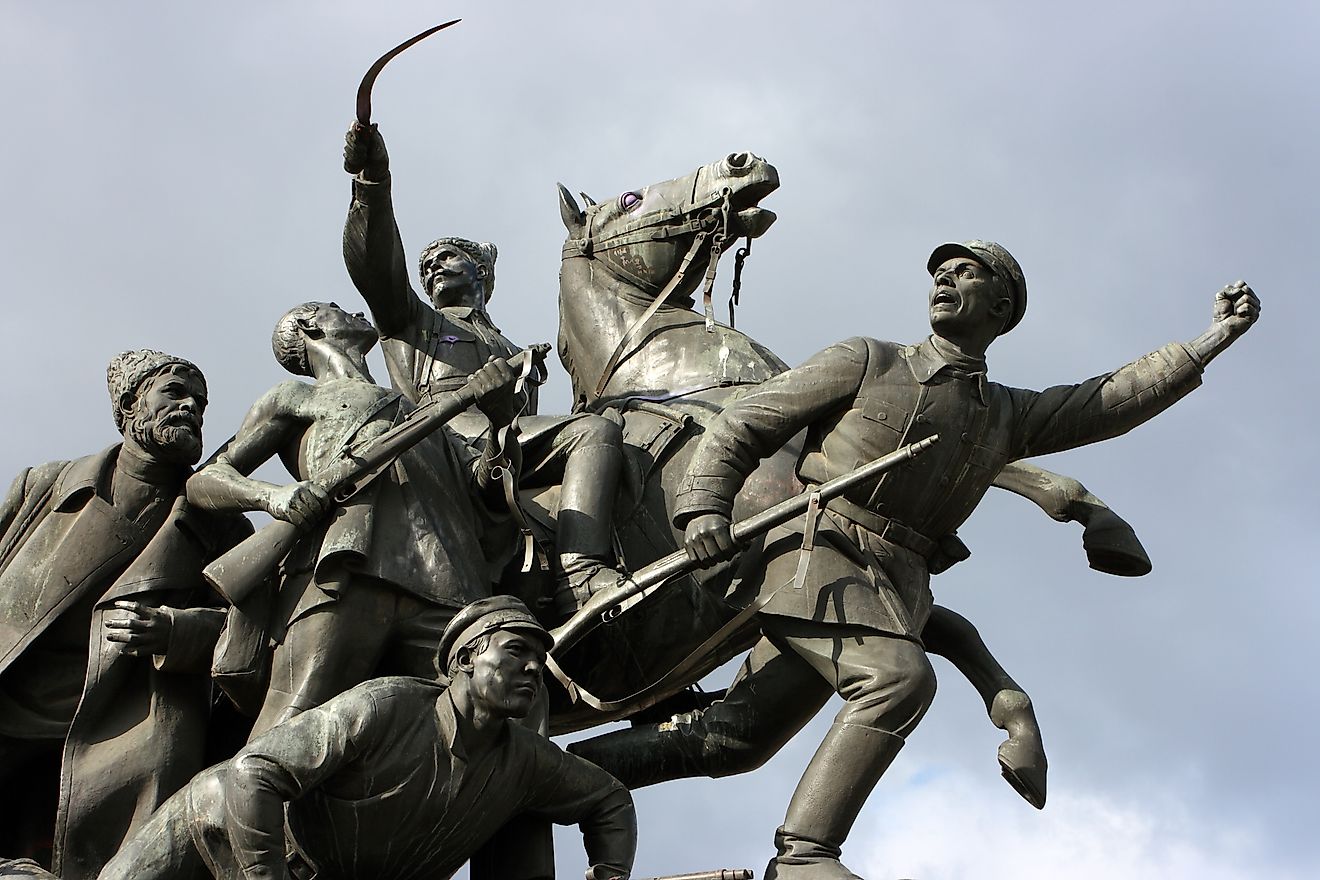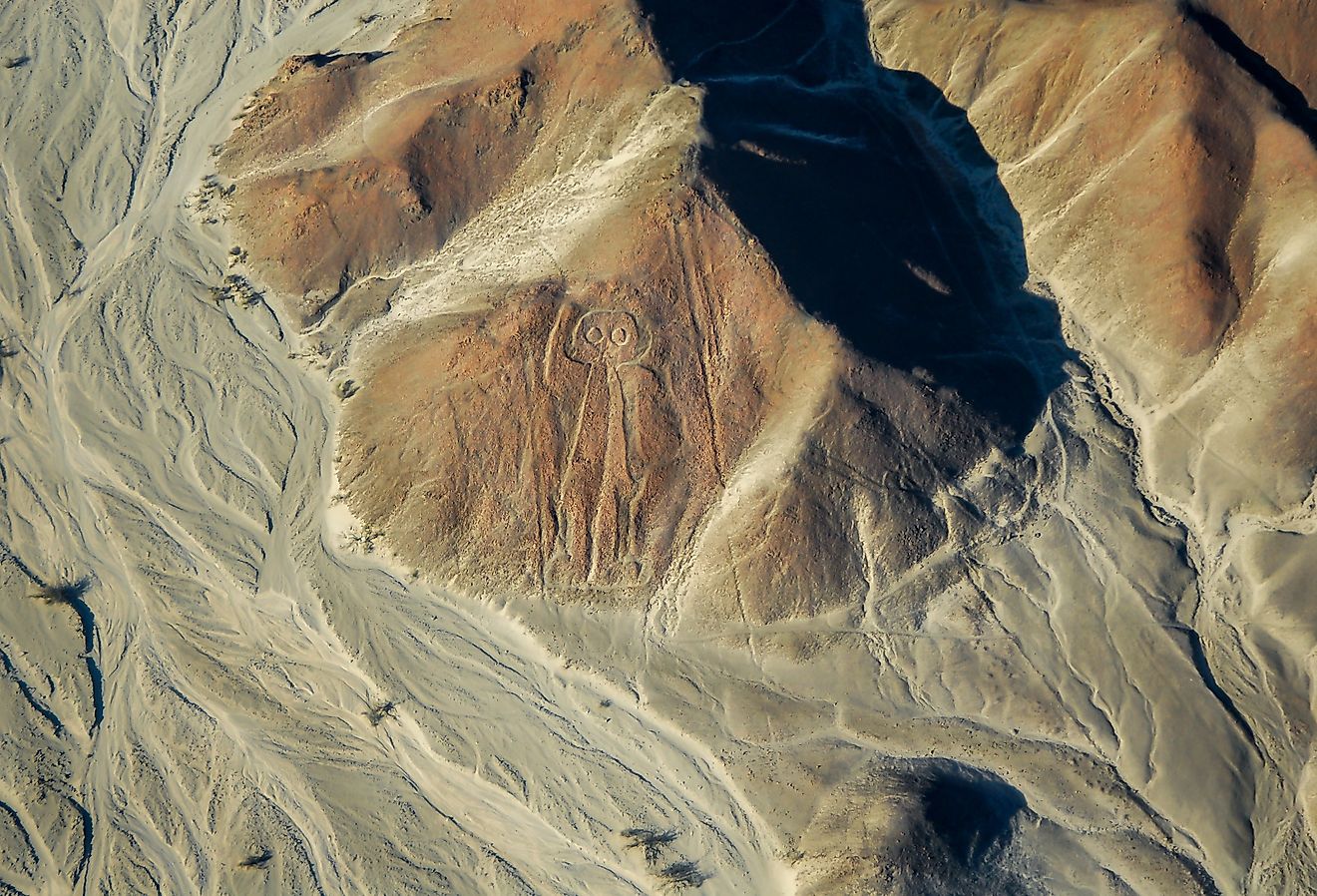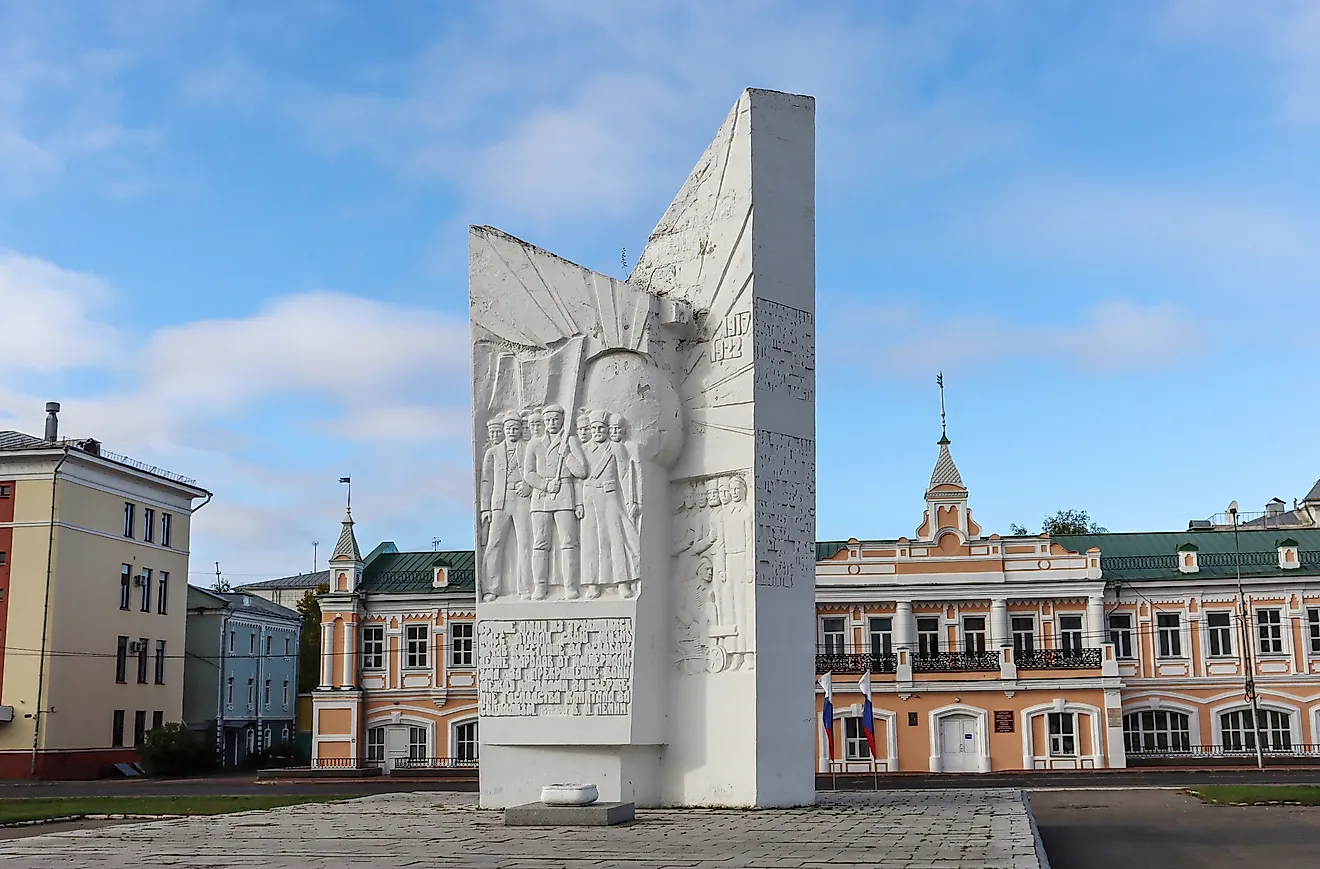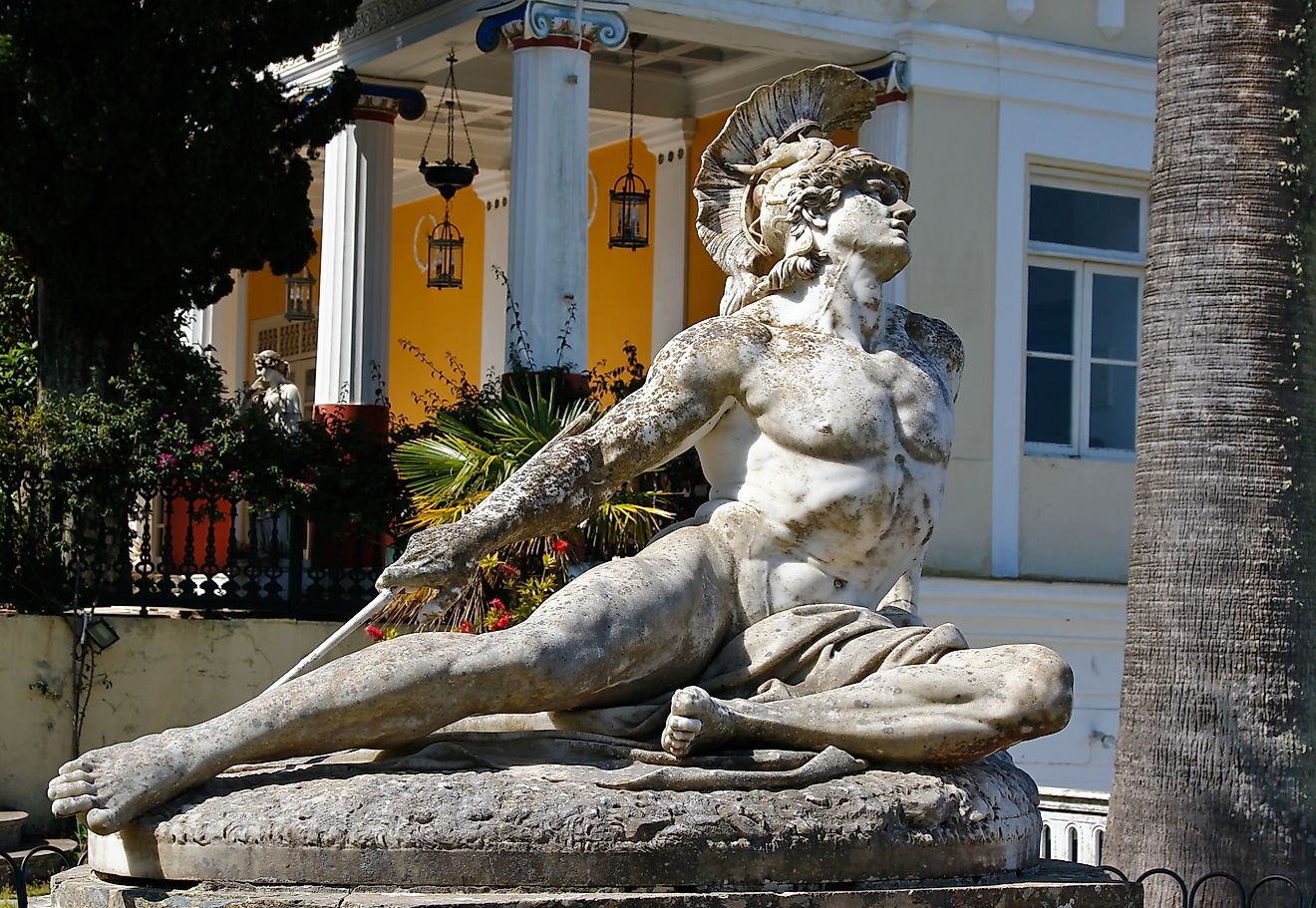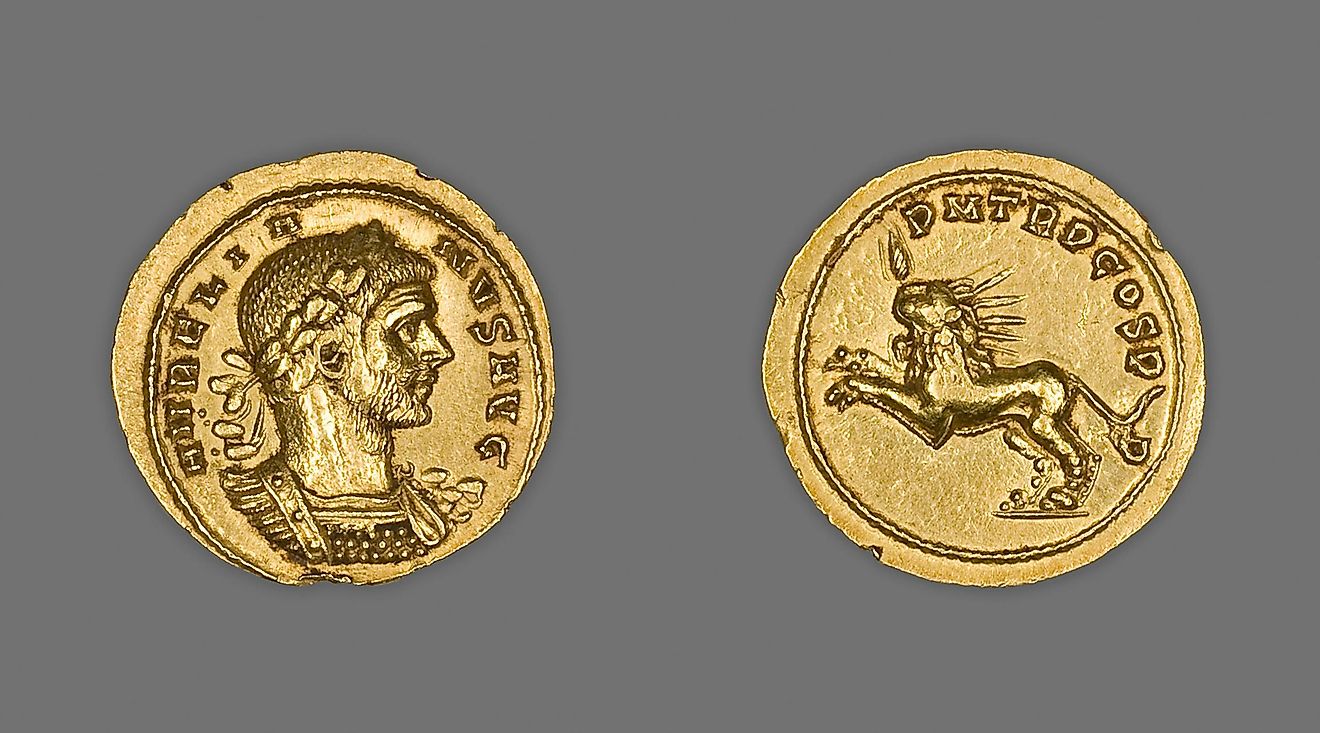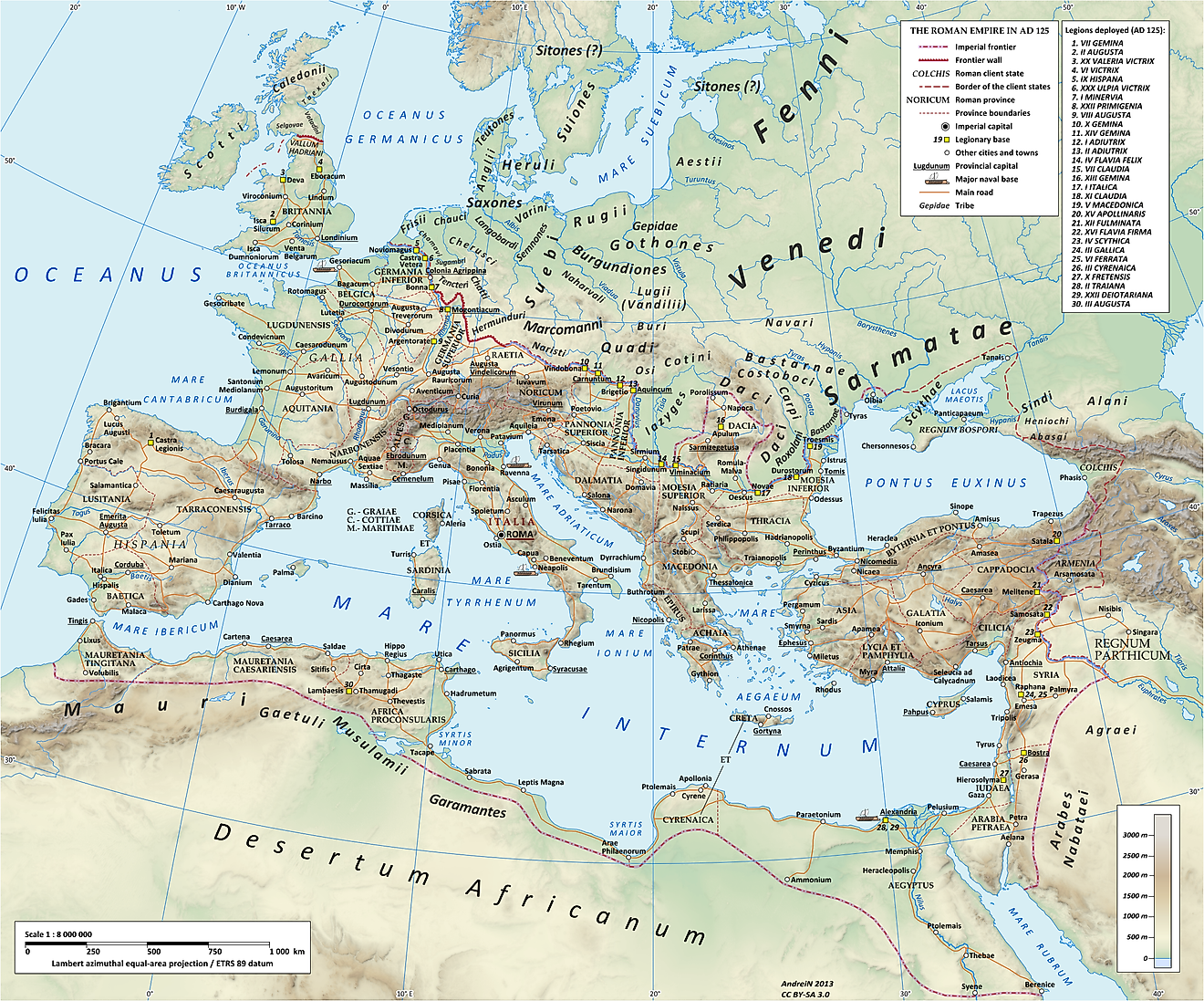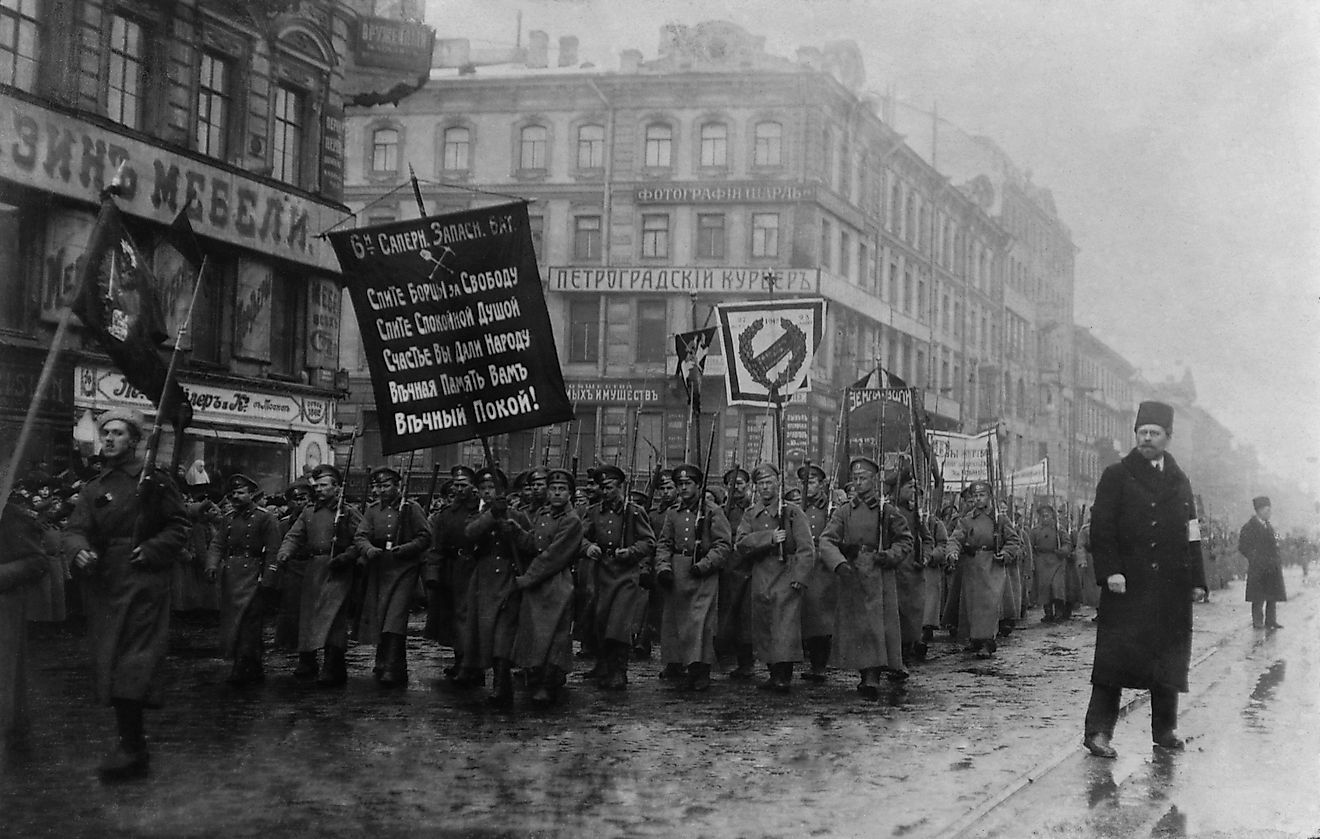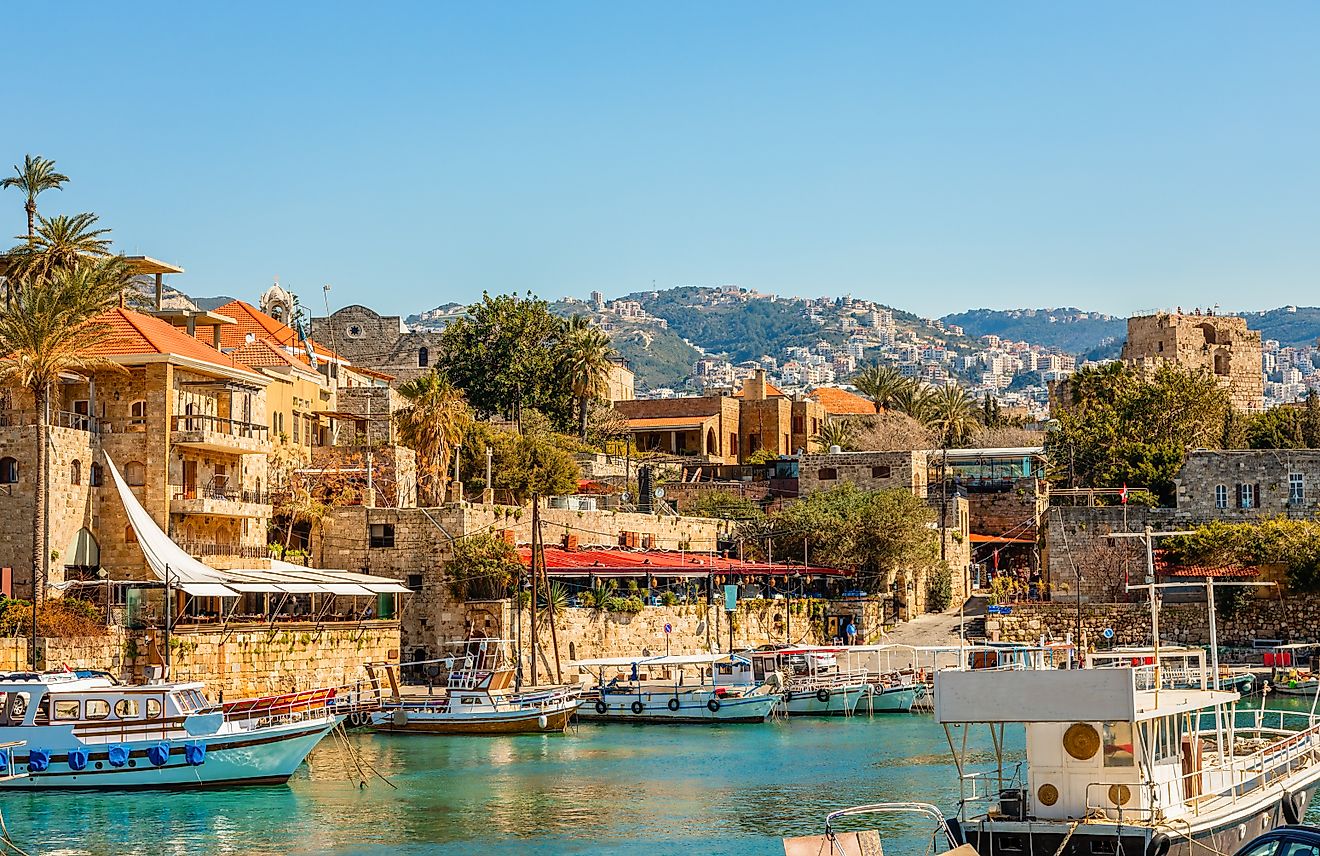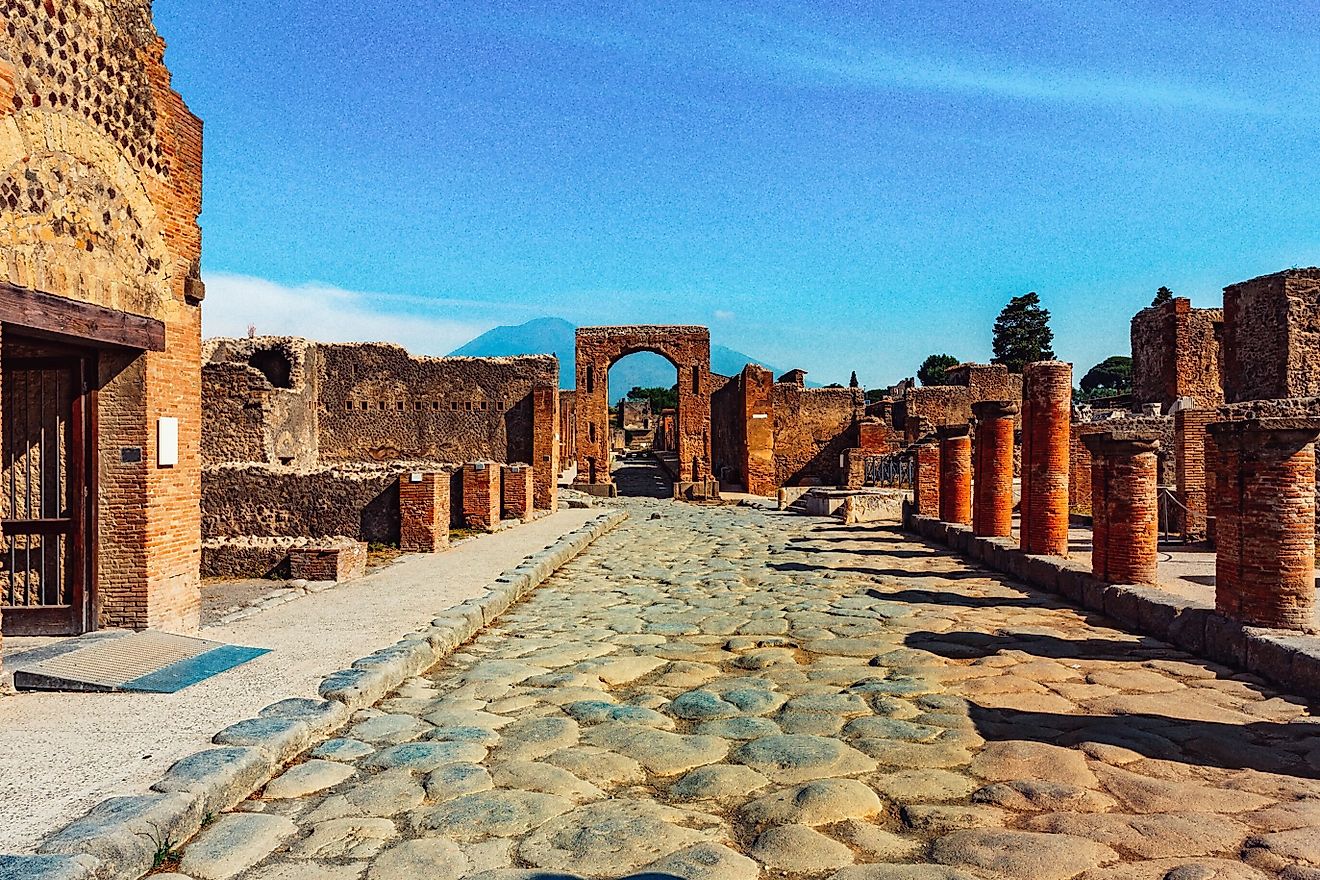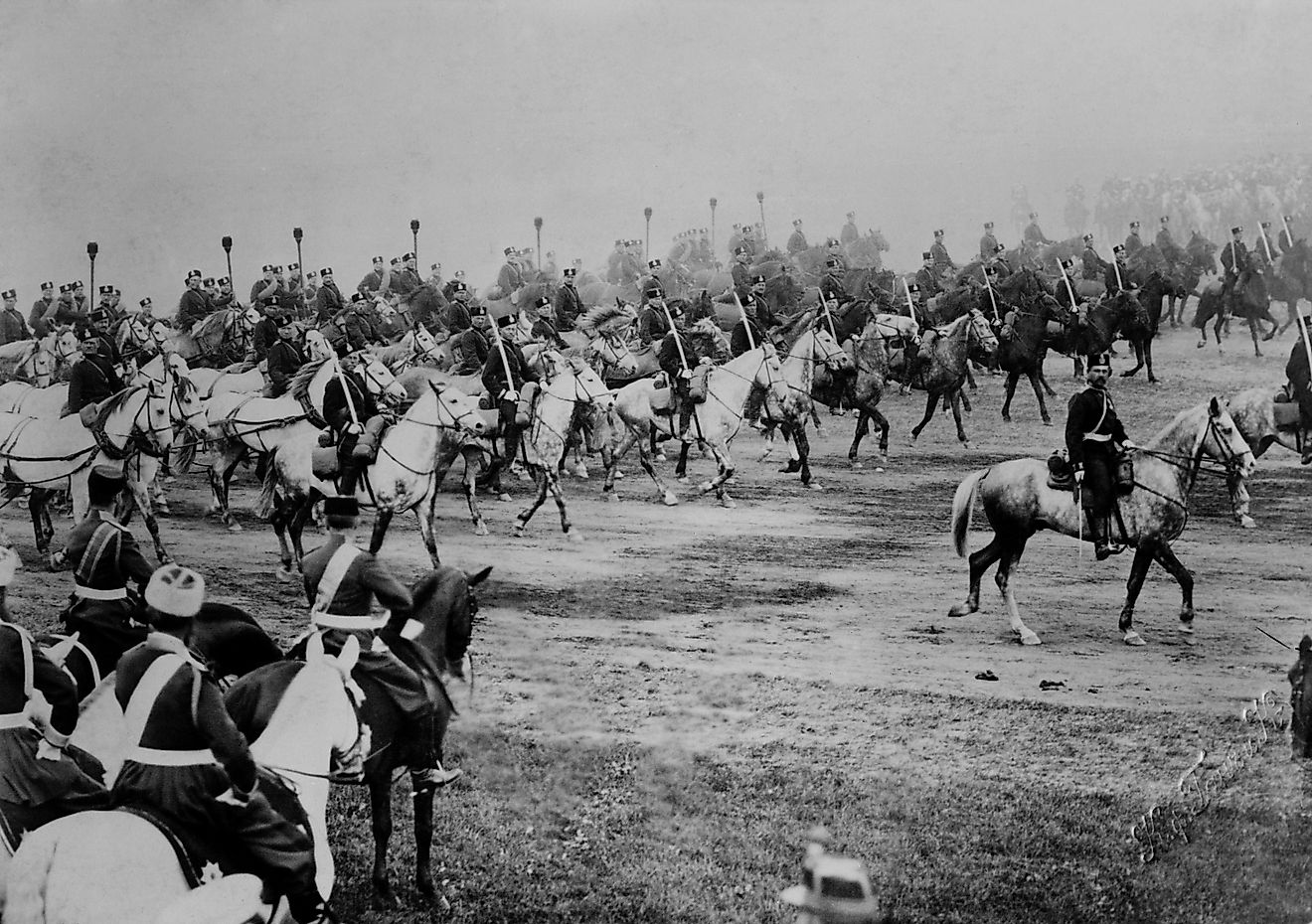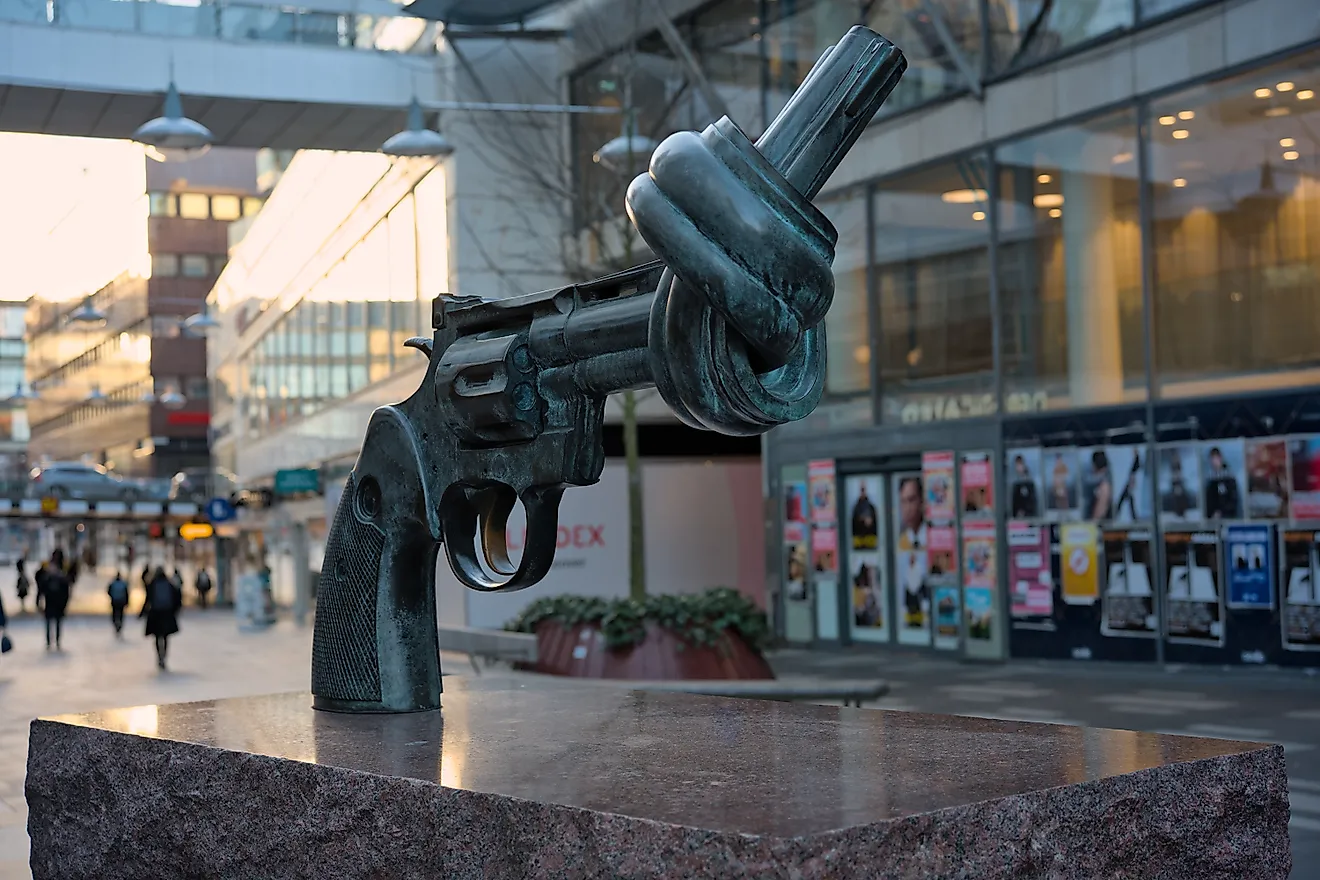
7 Reasons Why Rome Fell
Historians have long studied and debated the catastrophic fall of the Roman Empire. Ever since its collapse in 476 CE, academics have been trying to figure out how such a peerless civilization that had once ruled with total dominance faced such a humiliating defeat. The Roman Empire did not fall apart due to one single issue, but rather dozens. Decades, if not centuries of unsolved problems all culminated and led to the spectacular downfall of one of the greatest civilizations in human history.
1. Migration and Barbarian Invasion

One of the most obvious reasons for the downfall of Rome was the relentless and seemingly endless waves of migration and invasions from the Barbarian tribes that bordered Rome's northern frontiers. In the early days of the empire, Roman legions were able to repel Barbarian tribes with relative ease, but this started to change towards the end of the 2nd century CE.
After centuries of fighting the Romans, the once ill equipt and poorly organized tribes slowly became a much more formidable foe. The tactics of the Barbarians developed over time and soon what was once a trivial nuisance became a serious threat. During the final years of the Western Roman Empire, this problem was only made worse by the sudden appearance of the infamous Attila the Hun. Storming across the Eurasian steppe, the Huns conquered, enslaved, and brutalized the Germanic people outside of the Empire and pushed them deeper into Roman territory to seek refuge.
2. Corruption

The Roman Empire was never totally free of corruption, but it reached its zenith in the 3rd century and onward. Government officials and middlemen became much more interested in their own well-being rather than that of Rome. This made levying taxes and enforcing laws much more difficult. Various Roman authorities quickly lost trust in one another for fear the other would stab them in the back.
The treacherousness of the famed Praetorian Guard is the best example of this. Originally created to serve as the elite bodyguards of the Emperor, they became one of the leading causes of death for Roman supreme authority. Throughout the history of the empire, dozens of Roman Emperors faced assassination by the Praetorians. Often paid or enticed with promotions by political rivals of the Emperor, the Praetorians were quick to jump at the opportunity to slay the man they swore to protect.
3. Climate Change and Famine

Climate change is often thought about in the modern context of CO2 emissions and global warming but radical change in global temperature also affected the Romans. In the 5th century CE, the once warm and temperate climate of the Mediterranean and Western Europe became uncharacteristically cold. This sudden change in climate resulted in failing crops and led to subsequent food shortages across the Western Roman Empire.
This also affected the Barbarian tribes in the North causing them to push southward for a more stable and livable climate. As one could imagine this only exacerbated the countless issues the empire was facing at this time. Unable to care for their own citizens along with the new arrivals, many Romans starved or turned to banditry to find food. Lawlessness was widespread in the final years of the empire.
4. Disloyal and Ineffective Militaries

By the 3rd century, the legions, made up of highly dedicated and motivated Roman citizens were a distant memory. As the military expanded to keep up with constant wars and raids from its enemies, it struggled to entice Roman citizens to join the legions to protect their homelands.
This left Roman generals and Emperors no choice but to hire mercenary groups, often recruited from Barbarian tribes. These groups of mercenaries called foederati had almost zero loyalty to Rome itself and were only beholden to their wage or the general that led them.
This usually led to their defection or raiding of nearby Roman towns or countryside as compensation if they did not receive payment. Money being the driving factor of their service, the foederati had no qualms with participating in devastating civil wars in hopes of getting their general the title of Emperor.
5. Civil Wars

Since the time of Augustus, the Roman Empire could never figure out a functional transition of power from one emperor to the next. This often led to civil wars.
Countless generals, politicians, and wealthy aristocrats would all claim to be the rightful rulers of the empire. Backed by legions or mercenary groups, that were loyal to them, these pretenders would engage in bloody and costly wars for power, only for the winner to be promptly assassinated and start the cycle of death and destruction all over again. Needless to say, these civil wars severely damaged the Roman military and stunted its effectiveness against outside forces.
The Crisis of the 3rd century was one of these many instances. When Emperor Alexander Severus' own soldiers killed him in 235 CE it set off a chain of events that almost led to the collapse of the Roman Empire 200 years earlier. If it was not for the military and political genius of Emperor Aurelien, then Rome would have surely met an early end. After Aurelien united the empire again, his own disgruntled soldiers murdered him and another civil war ensued.
6. Economic Destitution

Rome's constant wars with its neighbors did not come cheap. The Roman Empire struggled to pay for its military, needing to constantly raise taxes that many could not pay. This killed any semblance of a "middle class" and it also forced rich landowners to come up with ever-ingenuous ways to hide their wealth. An over-reliance on slave labor also hamstrung the empire in its later years.
As Rome stopped expanding outwards and focused on the defensive, the once steady stream of slaves and spoils of war became a trickle. This meant that young men who could otherwise obtain a career in the Roman legions were stuck with the backbreaking manual labor required to run a farm or shop.
7. Weak Leadership

The emperors that emerged victorious from disastrous power struggles were not always fit to run the most powerful empire in the world. While Rome did experience a string of decent and competent emperors, in its later years under Diocletian and Constantine, they were the exception to the rule.
The 4th and 5th centuries produced some of the worst leadership the empire had ever seen. Indecisive, inept, and corrupt. The final 20 years of the Western Roman Empire saw nine different emperors murdered, exiled, or dying of natural causes shortly after taking power. Majorian, the only competent emperor of the bunch was very close to reclaiming lost land when betrayed by a power-hungry general named Flavius Ricimer. Deposed by the Gothic King Odoacer in 476 CE, the last Roman emperor Romulus Augustus was only 16 years old.
Summary
The fall of the Western Roman Empire can teach humans many things about societal collapse and regression. Most shortcomings of a civilization in decline come from within rather than without. Incompetent leaders, government corruption, a weak economy, and social dissolution all contributed to the downfall of Rome. Considering how deep and long-lasting these issues were for the Romans it is surprising that Rome did not fall sooner. Their ability to hold everything together until the 5th century is a testament to the great people and institutions that made the Roman Empire the power it once was.
